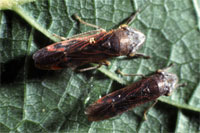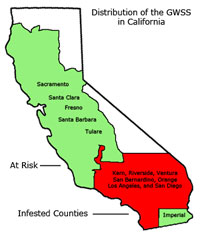- Agricultural Commissioner
- About Us
- FAQs
- Funding
- How We Are Funded
- County General Fund
- Pesticide Use Reporting
- Oak Death Inspection
- Pierce’s Disease Control
- Pierce’s Disease Nursery Treatments
- Organic Crops Program
- Seed Inspection
- Nursery Inspection
- Farmers Market Inspection
- Land Use Planning
- Pest Control Business Registrations
- Citrus Maturity Inspection
- Programs
- How We Spend Our Time
- Pest Detection and Eradication
- Citrus Inspection and Commodity Regulation
- Pierce’s Disease Control
- Pest Exclusion and Plant Quarantine
- Seed Inspection
- Nursery Inspection
- Farmers Market Inspection
- Egg Quality Control
- Apiary Inspection
- Crop Statistics
- Pesticide Use Enforcement
- NPDES MS4 Permit Compliance Inspections
- Land Use Planning
- Toland Landfill Project
- Weights & Measures
- FORMS/DATA
- Notices
- APAC
- SALC GRANT
- Crop Reports
- Contact Us
- Agricultural Commissioner
- About Us
- FAQs
- Funding
- How We Are Funded
- County General Fund
- Pesticide Use Reporting
- Oak Death Inspection
- Pierce’s Disease Control
- Pierce’s Disease Nursery Treatments
- Organic Crops Program
- Seed Inspection
- Nursery Inspection
- Farmers Market Inspection
- Land Use Planning
- Pest Control Business Registrations
- Citrus Maturity Inspection
- Programs
- How We Spend Our Time
- Pest Detection and Eradication
- Citrus Inspection and Commodity Regulation
- Pierce’s Disease Control
- Pest Exclusion and Plant Quarantine
- Seed Inspection
- Nursery Inspection
- Farmers Market Inspection
- Egg Quality Control
- Apiary Inspection
- Crop Statistics
- Pesticide Use Enforcement
- NPDES MS4 Permit Compliance Inspections
- Land Use Planning
- Toland Landfill Project
- Weights & Measures
- FORMS/DATA
- Notices
- APAC
- SALC GRANT
- Crop Reports
- Contact Us
Pierce's Disease Control Inspection


This program provides funding to assist growers of citrus who farm adjacent to commercial nurseries in treating their crop for the Glassy Winged Sharpshooter (GWSS). Treatments applied help to reduce the number of GWSS in nearby orchards to facilitate the shipment of nursery stock from Ventura County. Citrus is an alternate host for the GWSS and provides a place for the pest to live and multiply before moving into the nursery. Anything that reduces the number of GWSS in the area is helpful to the nurseries who must maintain stock that is free from the GWSS, in order to sell their stock in areas of the state where the pest does not occur. Nursery stock was valued at $180,057,000 in 2010 and was third in value among all Ventura County crops. Nursery stock is one of the fastest growing commodities in the county as land to the south in Los Angeles and Orange Counties is lost to development. The Agricultural Commissioner administers these funds and assures that funding assistance is provided in those areas where it can do the most good in reducing pest levels and maintaining GWSS free areas around our nurseries. The Agricultural Commissioner does not do any of the treatments. All treatments are done by appropriately licensed and certified applicators applying only approved reduced risk materials. These funds are provided by the winegrape growers themselves from a self assessment on grapes harvested. The purpose of the funding is to keep the GWSS from entering areas of the state where winegrapes are grown.



